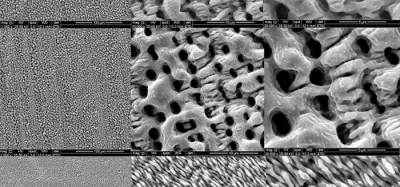‘Toxic’ pesticide seed coatings widespread but under-reported, says study
- Like
- Digg
- Del
- Tumblr
- VKontakte
- Buffer
- Love This
- Odnoklassniki
- Meneame
- Blogger
- Amazon
- Yahoo Mail
- Gmail
- AOL
- Newsvine
- HackerNews
- Evernote
- MySpace
- Mail.ru
- Viadeo
- Line
- Comments
- Yummly
- SMS
- Viber
- Telegram
- Subscribe
- Skype
- Facebook Messenger
- Kakao
- LiveJournal
- Yammer
- Edgar
- Fintel
- Mix
- Instapaper
- Copy Link
Posted: 18 March 2020 | Sam Mehmet (New Food) | No comments yet
Research has found that a large number of farmers and growers are not aware of the pesticide being used on their seeds, some of which are said to be highly toxic to beneficial insects and could result in harm to human health.


Seed-coated pesticides, such as neonicotinoids, are increasingly used in the major field crops, but are underreported, in part, because farmers often do not know what pesticides are on their seeds, according to an international team of researchers. Credit: Alyssa Collin
Pesticide-coated seeds – such as neonicotinoids, many of which are highly toxic to both pest and beneficial insects – are increasingly used in the major field crops, but are under-reported, in part, because farmers often do not know what pesticides are on their seeds, according to an international team of researchers. The lack of data may reportedly complicate efforts to evaluate the value of different pest management strategies, while also posing risk to human health and the environment.
“We reviewed existing evidence, as well as proprietary and novel government data, on seed treatment usage and found that many farmers either did not know what pesticides were on their seeds or falsely assumed that seed treatments did not include certain pesticides,” said Paul Esker, Assistant Professor of epidemiology and crop pathology, Penn State. “This lack of knowledge could lead to overuse of pesticides, which could harm the environment and farmers’ health.”
The team analysed proprietary data from Kynetec, a third-party global marketing and research firm that maintains one of the most comprehensive datasets on pesticide use in the US, collected from 2004-2014. They found that the use of seed treatments in the US grew over the past decade, particularly in corn and soybean production.
In the 2012 to 2014 period, 90 percent of corn acres and 76 percent of soybean acres were grown with treated seeds. Of the insecticides applied to seeds, neonicotinoids accounted for approximately 80 percent.
The researchers also analysed farmers’ responses to questions about pesticide-coated seeds documented in the Agricultural Resource Management Survey (ARMS) – the US Department of Agriculture’s (USDA) primary source of information on the production practices, resource use and economic well-being of America’s farms and ranches.
They found that around 98 percent of farmers were able to provide the names of the field-applied pesticides used on their cotton, corn, wheat or soybean crops. By contrast, only 84 percent of cotton growers, 65 percent of corn growers, 62 percent of soybean growers, 57 percent of winter wheat growers and 43 percent of spring wheat growers could provide the name of the seed-treatment product on their crops. The rest either did not answer the survey question or specified that they did not know.
“One of the most important findings of this study is that farmers know less about pesticides applied to their seeds than pesticides applied in other ways,” said Margaret Douglas, Assistant Professor of environmental studies, Dickinson College. “This is likely because seed is often sold with a ‘default’ treatment that contains a mix of different pesticide active ingredients, and the treated seed is exempt from some labelling requirements. Without knowing what is on their seeds, it is nearly impossible for farmers to tailor pesticide use to production and environmental goals.
“Reliable data on pesticide use is needed by regulators, farmers, and researchers to increase agricultural production and profitability and to protect human health and the environment from the adverse effects of pesticides,” she said.
“This is also an opportunity for further collaboration among different disciplines, like agronomy, plant pathology, entomology, economics and environmental science, to address farm issues from a whole-system perspective,” Esker added.








